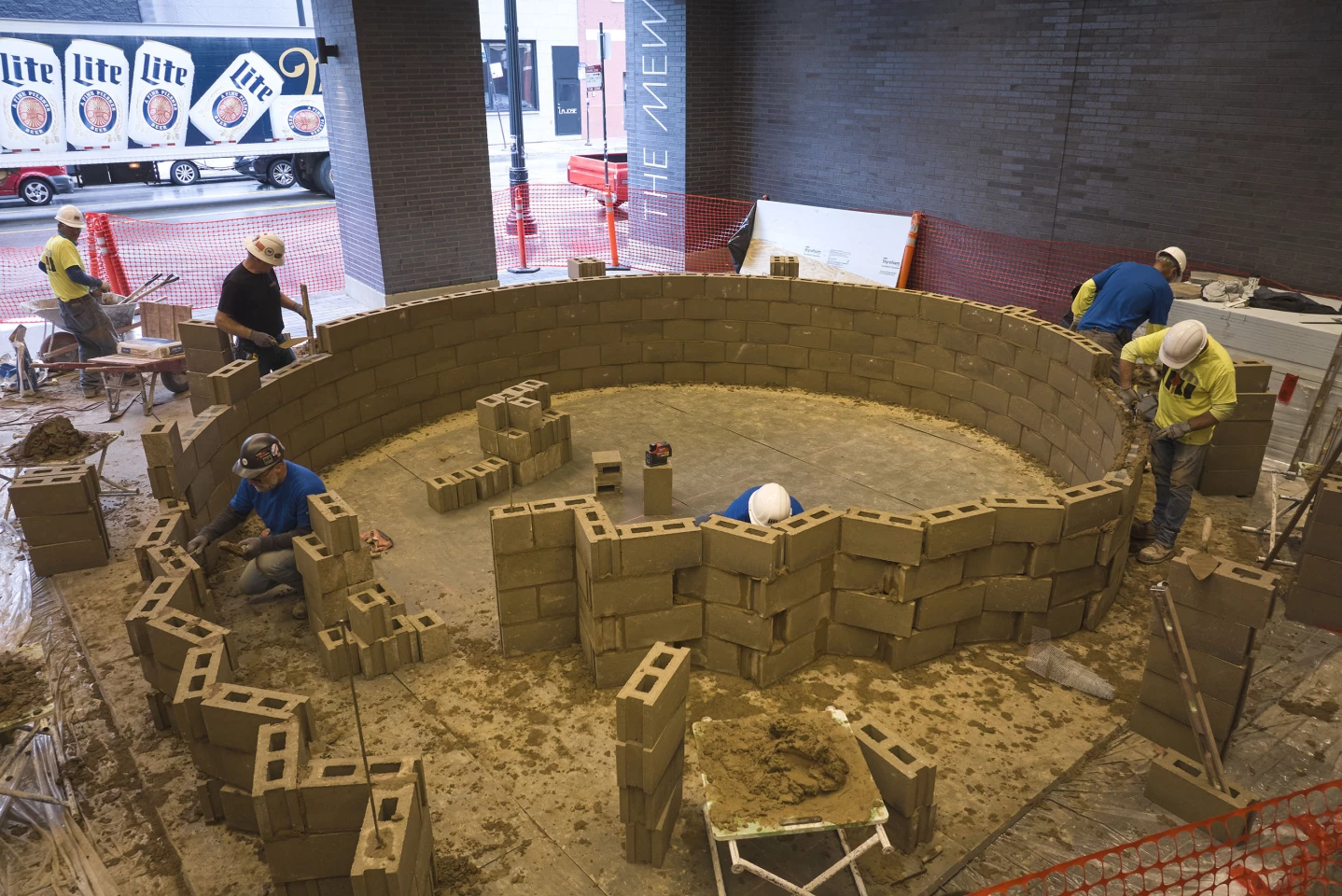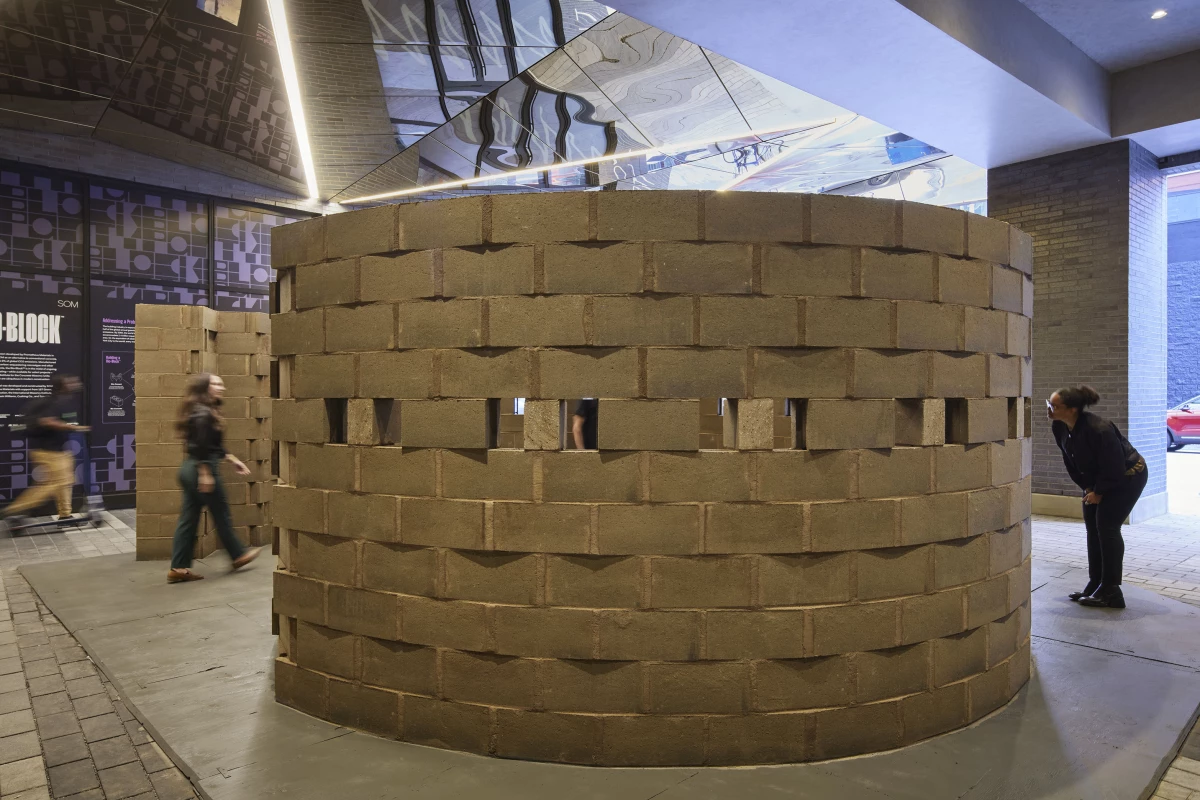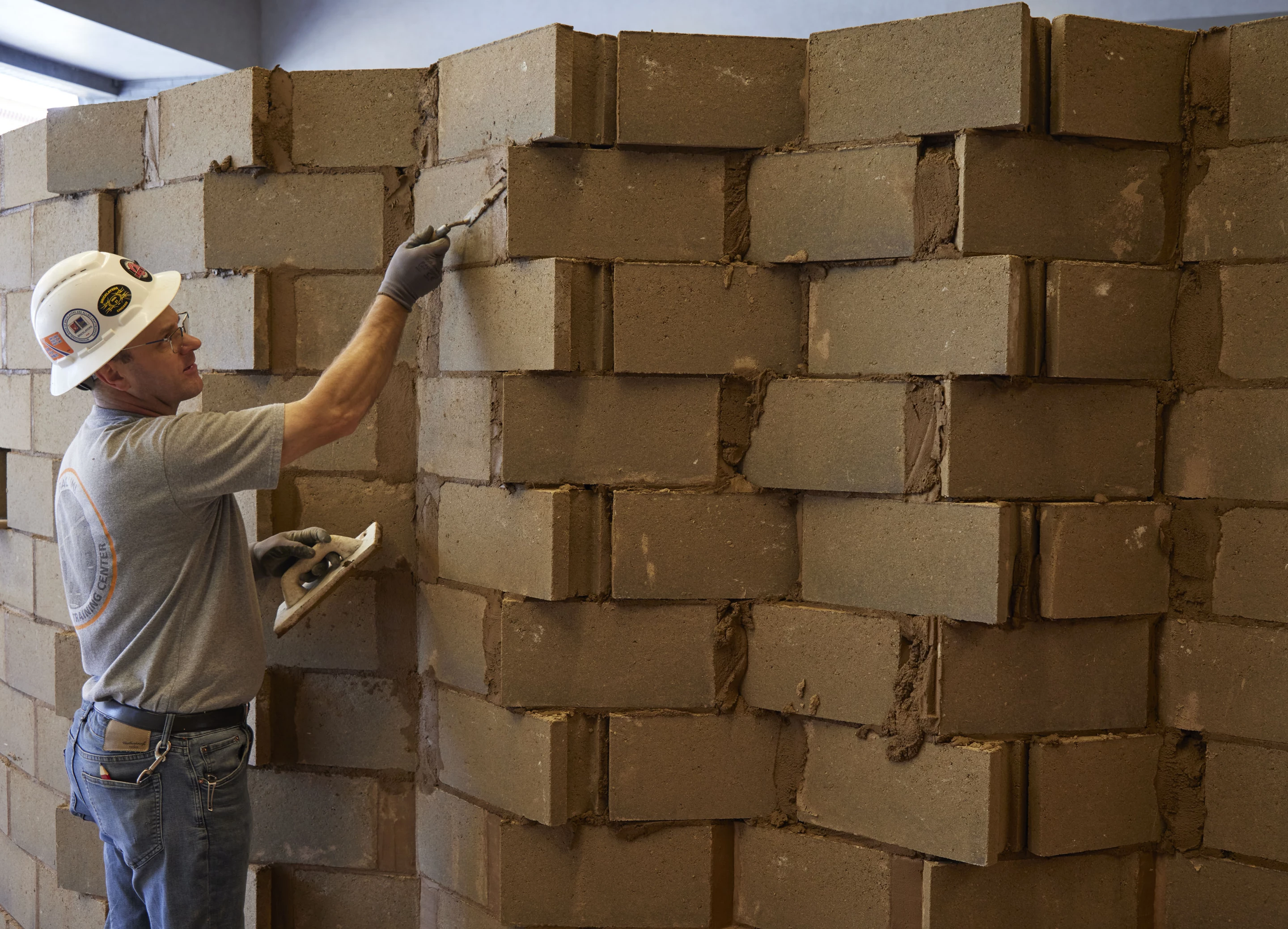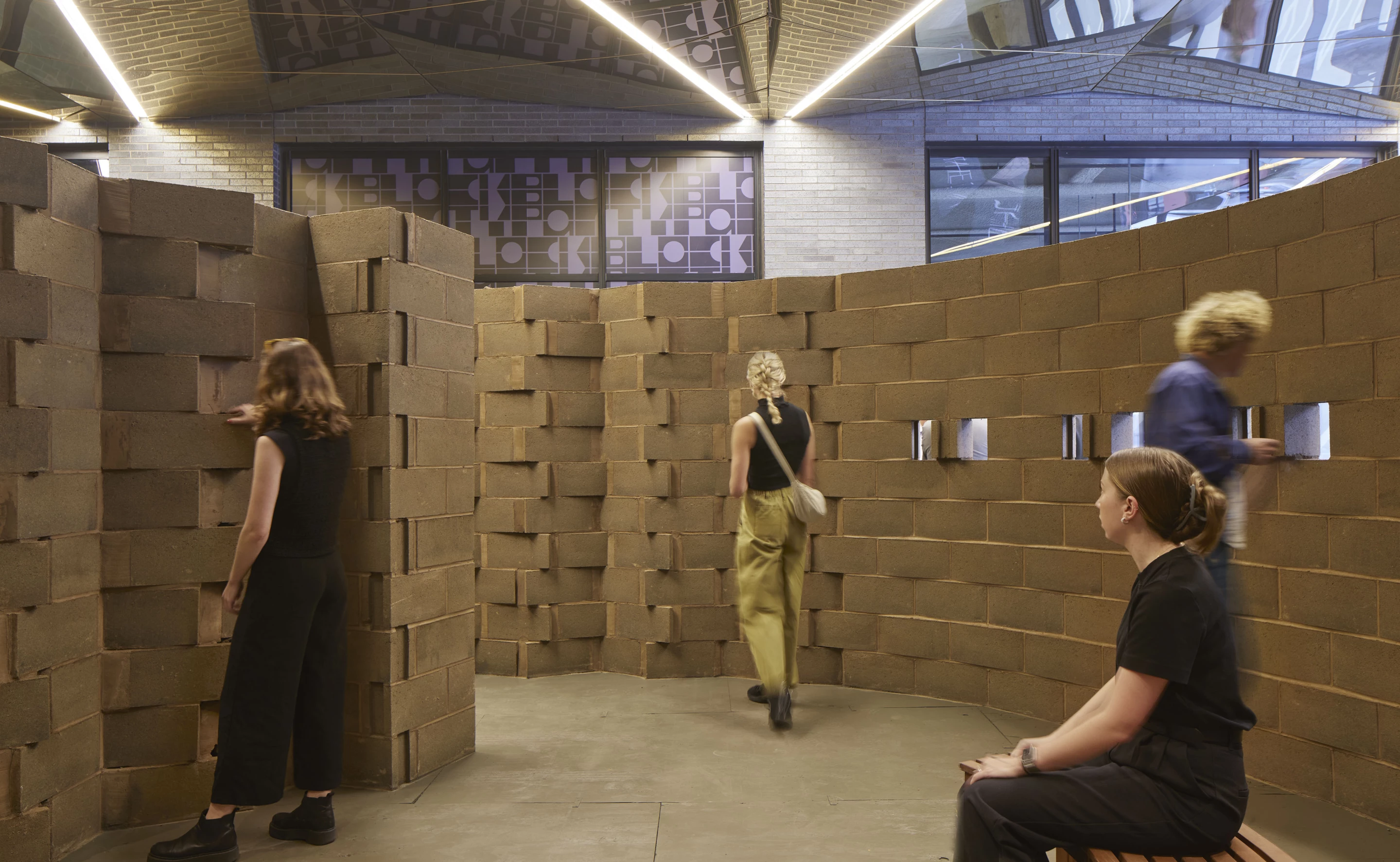Concrete is a huge contributor to worldwide CO2 emissions, and Concrete Masonry Units (aka cinder blocks or breeze blocks) make up a significant part of this. However, a new project by Skidmore, Owings & Merrill (SOM), in collaboration with Prometheus Materials, showcases an alternative algae-based block that's far better for the environment.
SOM's prototype is currently installed at the 2023 Chicago Architecture Biennial and is named the Spiral. It takes the form of a simple structure made up of Bio-Blocks, which are developed by Prometheus Materials, a start-up company that originated from a research program at the University of Colorado.
The blocks are created using naturally occurring microscopic algae that sequesters carbon. The micro-algae is combined with water, sunlight, and CO2 to create a material that's similar to the calcium carbonate generated in coral reefs. When mixed with an aggregate, this forms a net zero-carbon building material that has similar – or in some cases improved – physical and thermal performance properties to standard Portland cement-based concrete.

"Fabricated by Prometheus Materials out of naturally carbon-sequestering micro-algae put through a patent-pending photosynthetic biocementation process, Bio-Block offers a sustainable alternative to concrete and, if deployed at scale, could reduce our global CO2 emissions by up to 8%," explained SOM's press release.
"By replacing just the concrete blocks with Bio-Blocks, the Spiral reduces carbon emissions by one metric ton. Constructed by skilled union masons from the International Masonry Institute (IMI) and the Bricklayers and Allied Craftworkers Administrative District Council 1 of Illinois in collaboration with Clayco and J&E Duff using conventional masonry techniques, Bio-Block Spiral marks an important next step in the material’s deployment."
It's early days yet but this isn't just research for the sake of it. SOM is undertaking ongoing performance testing and if all goes well, the Bio-Blocks could eventually be used in real-world builds.
The CO2 produced by the construction industry is of real concern at the moment and, as well as the Bio-Blocks, there are efforts to promote the use of sustainably sourced timber and fungus-based bricks.
Source: SOM







